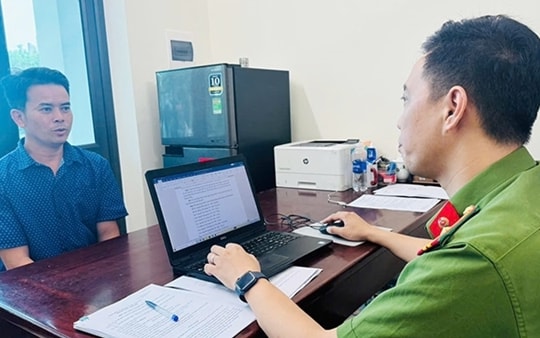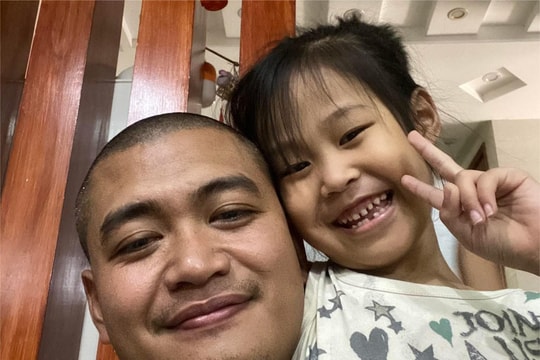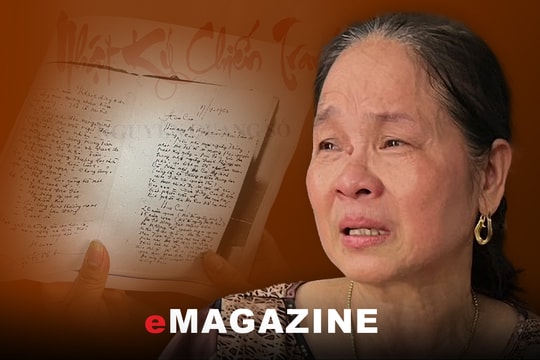Rare: Father sues daughter for stealing ashes and memorial tablets of grandparents
Discovering that his daughter had stolen his parents' ashes and memorial tablet, Mr. Tr. repeatedly went to claim them, but only received the ashes back, but the memorial tablet was nowhere to be found. Frustrated, he filed a lawsuit against his daughter.
It is expected that on May 27, the People's Court of Ho Chi Minh City will open an appeal hearing for the civil lawsuit "Reclaiming property and requesting a public apology".
This is a rather rare case where a father sued his daughter to claim the ancestral tablets of his parents (who are also the daughter's grandparents).
According to the lawsuit, Mr. Le Van Tr. is the son, the first and only heir of Mrs. Le Thi D. After Mrs. D. passed away, Mr. Tr. brought his mother's urn to worship next to his father's urn at Quan Am Tu Vien (Bien Hoa City, Dong Nai).
On September 4, 2018, Ms. Le Thi Ngoc A. (Mr. Tr.'s daughter) came to collect the urn and memorial tablet of her grandfather and grandmother. Later, the abbot of the pagoda discovered the incident and reported it to him.
Knowing the story, Mr. Tr. asked his daughter to return these relics, but Ms. A. refused to return them. On the contrary, she insulted and threatened her father.
Mr. Tr. filed a complaint with the police, requesting that his daughter be punished. However, the police instructed him to file a lawsuit in court on the grounds that this was a civil dispute, related to family worship.
After a period of searching, Mr. Tr. found his mother's urn, but the two stone tablets and a nameplate on his father's urn were still missing. Therefore, Mr. Tr. filed a lawsuit, demanding that Ms. A. return his parents' tablets, publicly apologize, and stop threatening to kill his second wife.
Out of fatherly love
At the first instance trial, Ms. A. did not agree with her father's request to sue and said that Mr. Tr. had taken back her grandmother's urn of ashes, and that she had taken the two tablets and nameplates on the urn of ashes to be buried at sea in the Dong Nai River.
At the first instance trial, the District 2 People's Court (HCMC) determined that according to Vietnamese custom, the responsibility and right to worship parents is assigned to the eldest son in the family. Mr. Tr. is the only son, so he has the right to manage the tablet and remains for worship purposes.
Therefore, Ms. A's act of taking the urn and the memorial tablet of her grandparents without Mr. Tr.'s consent is against morality, customs and practices.
Regarding value, the plaintiff also asserted that the memorial tablet had the deceased's name written on it, so it was only an object of worship, with spiritual and mental value, and had no value in civil transactions. Current law does not have regulations on the use, possession and disposal of memorial tablets as objects of worship.
However, the panel of judges held that based on Clause 2, Article 113 of the Civil Code, the memorial tablet is considered a specific object with no substitute.
Mr. Tr. was the one who spent money to buy the memorial tablet for his parents and directly sent it to Quan Am Monastery and paid the fee, so Mr. Tr. was determined to be the person with ownership rights to these relics. The defendant, Ms. A., must be responsible for returning the correct item or compensating in case the plaintiff requests.
However, according to Ms. A.’s testimony, the tablet was buried at sea in the Dong Nai River and Mr. Tr. had no evidence to prove that these relics still existed and were being held by the defendant. Therefore, in this case, the disputed object is considered to no longer exist. Therefore, the Panel of Judges considered that Mr. Tr.’s request to return the asset, which is the tablet, was inappropriate.
Regarding compensation, during the process of resolving the case, Mr. Tr. did not request compensation from Ms. A., so there was no basis for the court to consider.
Regarding the request for a public apology, Mr. Tr. said that the defendant had offended his honor and dignity, affected his health, and disrupted his family life. Mr. Tr. presented evidence that Ms. A. had insulted him through social networking sites. According to the panel of judges, these messages were not highly reliable and could have been faked, and this information was not documented.
On the other hand, Mr. Tr. also did not provide evidence to prove the actual damage caused by these messages, so the panel of judges believed that there was not enough basis or evidence to force Ms. A. to publicly apologize for insulting her honor and dignity.
Therefore, District 2 People's Court did not accept Mr. Le Van Tr's lawsuit request.
After the first instance trial, Mr. Tr. filed an appeal against the entire verdict.







